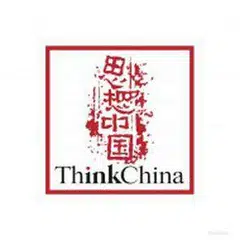Can China hold its own without the US?

Since the new US administration took office, US President Joe Biden's strategy has been to counter China through international alliances. On China's part, it said at the China-US meeting in Alaska in March that it was "not buying it", and also recently declared that its opponents will end up with "bloodied heads". All this shows that China-US relations have deteriorated to the point of having nothing in common; to put it simply, China and the US will soon have nothing to do with each other.
China and the US have different explanations for this. China says the US is trying to prevent and disrupt China's rise. But if so, how would one explain the so-called G2 arrangement and the Chimerica phenomenon, which were so popular in the US a few years ago?
The US says China has strayed far from its previous path of reform and opening up - which it considered being on the right track - as well as the general expectation among the US leadership that with China's economic growth would come greater freedom, democracy, rule of law, and fairness in its political system and social culture. This poses a threat to US interests and values.
This signals some major shifts in pattern. First, the historical pattern is that when China-US relations are good, both sides benefit but the benefits to China are more obvious. And when China-US relations get bad, the US continues to flourish while China seems to find it difficult to hold its own.
The fact is that the US is a benchmark, and countries that do not get along with the US are generally not very capable of taking care of themselves. Will China be an exception?

Some nationalists may smack the table and jump up crying: "Times have changed! We can still make it without the US." But this is a shallow view of China-US relations as one of "handouts" or "charity", which indicates a wrong mindset leading to a far mistaken conclusion.
In the early 20th century, if for instance, the US donated part of the Boxer Indemnity to fund China's public education and healthcare, that would carry a hint of a "handout", mainly because at that time China was weak and powerless and humiliated.
But since China's reform and opening up in the 1980s, its government and people have been independent and autonomous, with open development. It has formed mutually beneficial relations with Western developed countries including the US, and if it continues in this direction, its path is smooth and bright.
But now, China and the US will soon have nothing to do with each other. The fact is that the US is a benchmark, and countries that do not get along with the US are generally not very capable of taking care of themselves. Will China be an exception?
...the current focus of the tussle between China and the US when it comes to the coronavirus source is not the Wuhan lab leak theory as some are saying, but whether China will cooperate sufficiently with an open, independent, and autonomous international investigation.
Furthermore, the breakdown of China-US relations also signals that some major confrontations are on the way. First, the question of the source of the coronavirus. One example of Westerners' persistence in getting to the bottom of issues and seeking accountability is the US's ten-year pursuit and killing of Osama bin Laden, who planned the 9/11 terror attacks. They would not let this global public health disaster go unheeded.
And it is an indisputable fact that Wuhan was where the coronavirus first broke out. So, the current focus of the tussle between China and the US when it comes to the coronavirus source is not the Wuhan lab leak theory as some are saying, but whether China will cooperate sufficiently with an open, independent, and autonomous international investigation.

The Taiwan issue is another hot topic. Once a military conflict happens in the Taiwan Strait, the US-led response is clear. Japan will be the first responder, and if the conflict escalates, the US will step in. Australia will be the reserve backup, while India will engage in containment in the Indian Ocean and China-India border.
The strategic bottom line for the US, Japan, India, and Australia is that the Taiwan issue cannot be resolved by force. As for China, is it prepared for the US-led response as set out above? One thing mainland China should think about is, given that Taiwan shares the same culture and ethnicity with mainland China, and is only separated from mainland China by a narrow strait, why is it drifting further from mainland China? Is this simply explained by "Taiwanese separatism"? Is Taiwanese separatism so powerful? Perhaps public sentiment is more crucial.
China has shown a tendency to engage in the crass side of nationalism - that is, trying to link everything with nationalism, or making it a point of publicity.
Another pattern is that the competitive advantage of each side is key. The US has always fired on all cylinders: universal values, human rights, freedom of speech, finance and trade systems, leadership in education and technology, and global military reach. In contrast, it is generally recognised that apart from jingoistic nationalistic demands, China has practically nothing else to put on the table.
Furthermore, in recent years China has shown a tendency to engage in the crass side of nationalism - that is, trying to link everything with nationalism, or making it a point of publicity. From hybrid rice to large-scale planes, Hong Kong to space exploration, fashion sales to electronic chips, Wolf Warrior movies to diplomacy - all this is lumped together under nationalism. It was novel at first, but once overused it became stale and forced, resulting in the opposite effect.
Related: Strategic Competition Act: The US targeting China through Cold War politics? | How China might just win the China-US competition of governance systems | America turning to state intervention to win US-China tech war | Even as US-China competition intensifies, the world can look forward to a few good things | Grievances against the US? The Chinese need a mindset change
